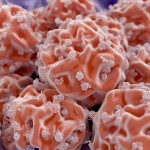 Twenty years of research into the use of stem cells to generate human blood has led to the potential for “limitless” blood supplies by turning adult cells into stem cells, which can in turn create any type of blood cell, researchers claim. This could reduce the risk of shortages for people with poor immune systems, genetic blood disorders or rare blood types.
Twenty years of research into the use of stem cells to generate human blood has led to the potential for “limitless” blood supplies by turning adult cells into stem cells, which can in turn create any type of blood cell, researchers claim. This could reduce the risk of shortages for people with poor immune systems, genetic blood disorders or rare blood types.
The blood was tested by using so-called humanised mice, which are mice carrying functioning human organs used for biological research, and allows for more rigorous research than using human test subjects. A similar but separate research team succeeded in turning adult mouse cells into mouse blood stem cells, which were then proven to boost the immune blood cell count of the mouse they were given to.
Both studies, described in the journal Nature, suggest a future twenty years in the making where blood shortages will be a thing of the past, although it should be said while this is a major breakthrough, the research isn’t complete yet, and there are currently concerns that stem cells used to create other cells have a risk of becoming cancerous, due to the way they self-renew and replicate. This is something that can be fixed through testing and double checking the risks carefully before this becomes a human treatment.
Because of this and the issues currently found with efficiency, Dr Guibentif from Cambridge University, has suggested it will be years before this treatment can be used to treat humans. In the meantime, a spokesperson for NHS Blood and Transplant has emphasised the importance of volunteer blood donors for patients.